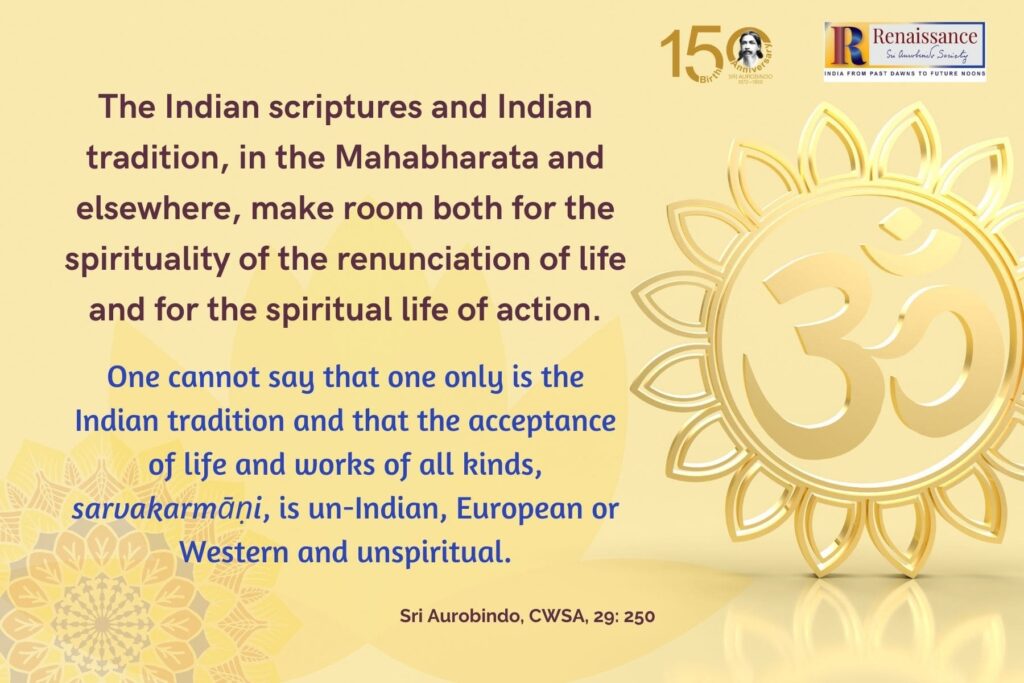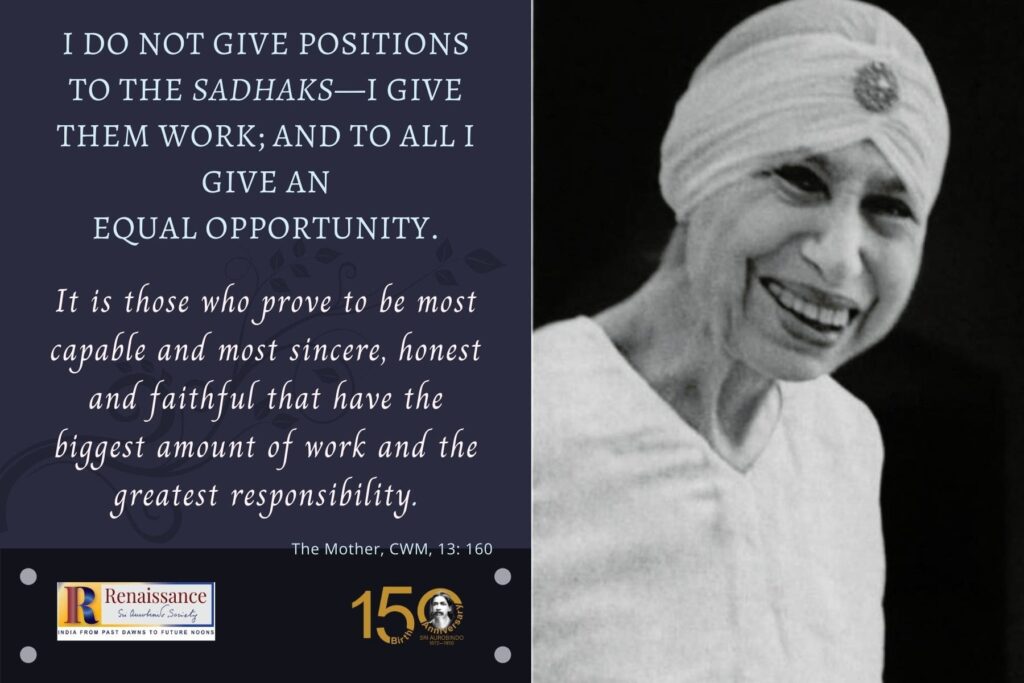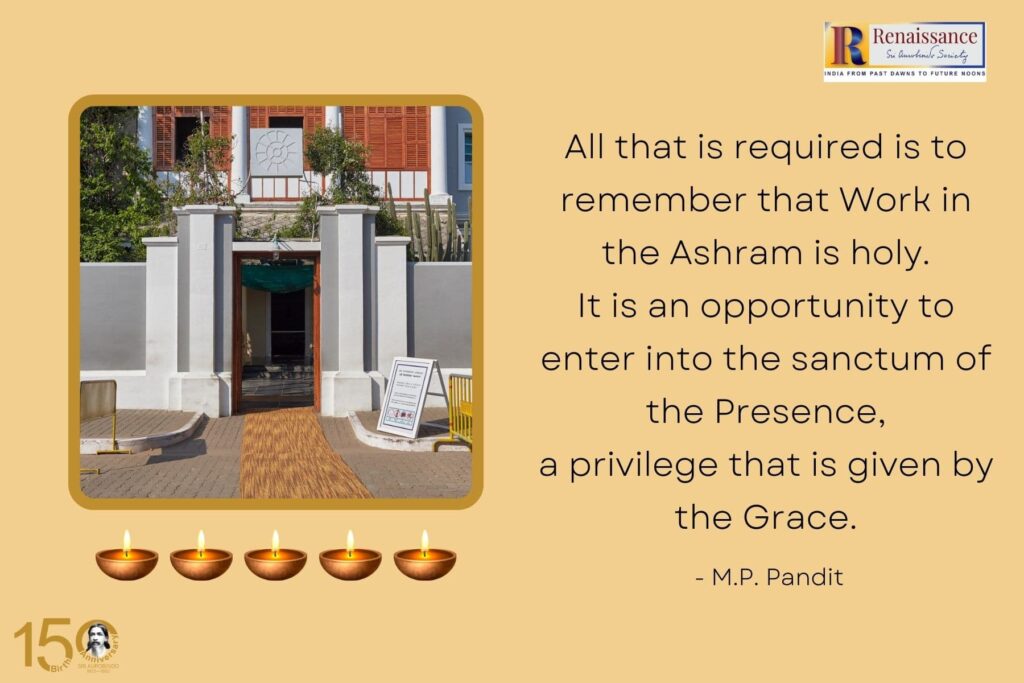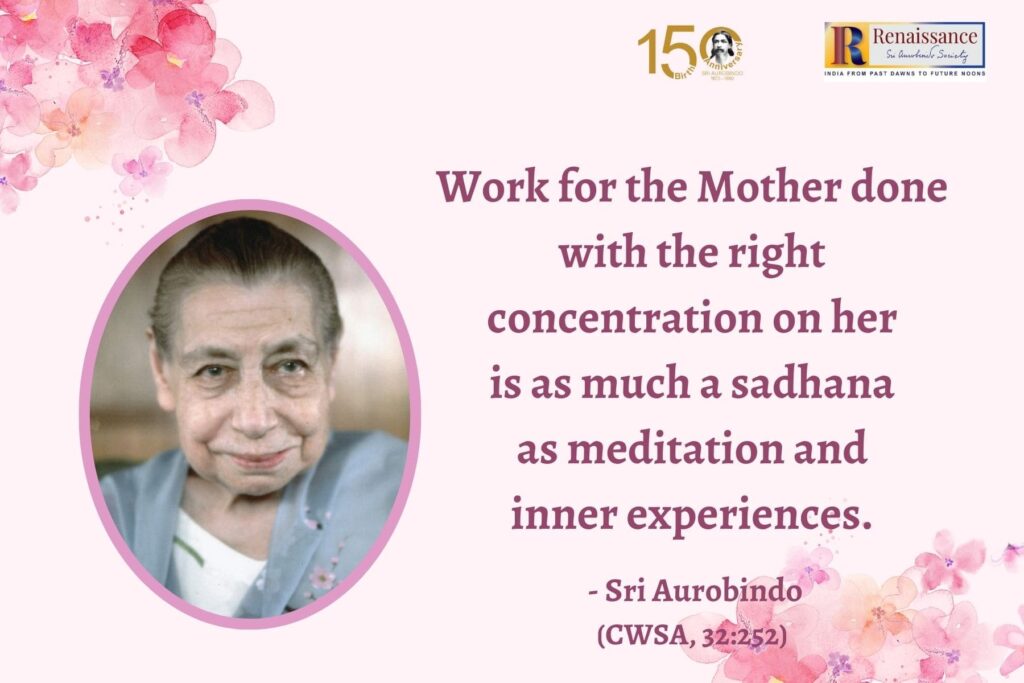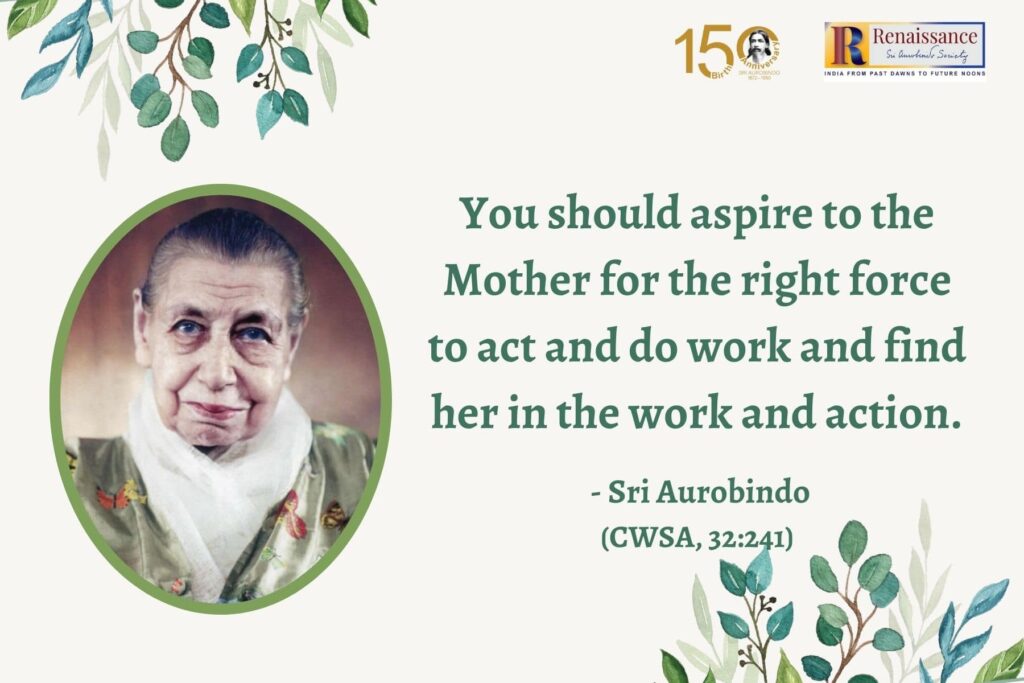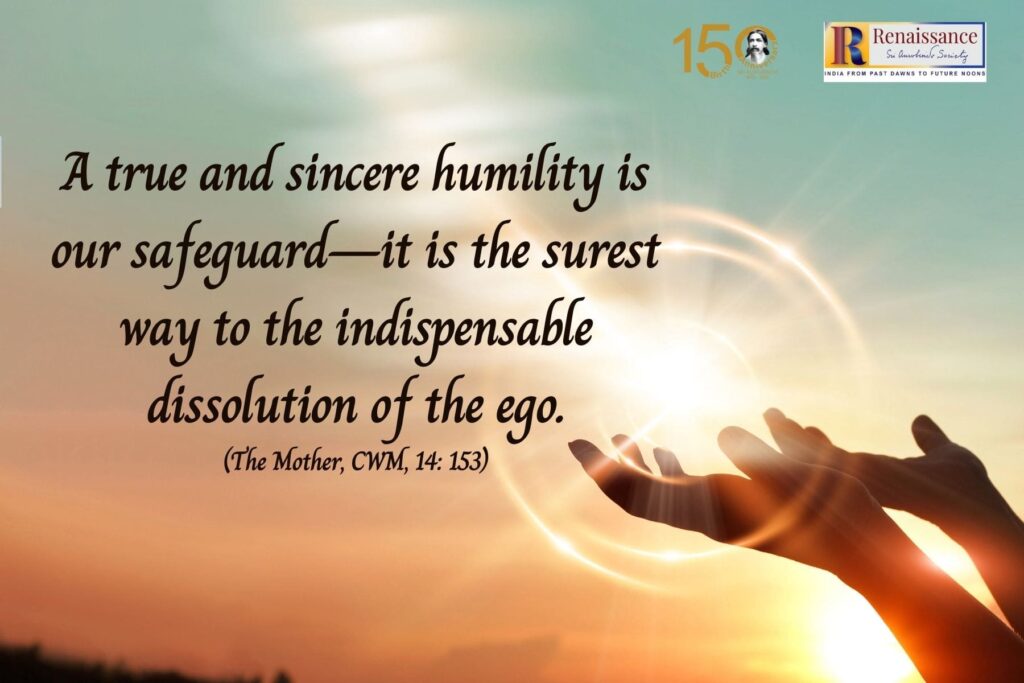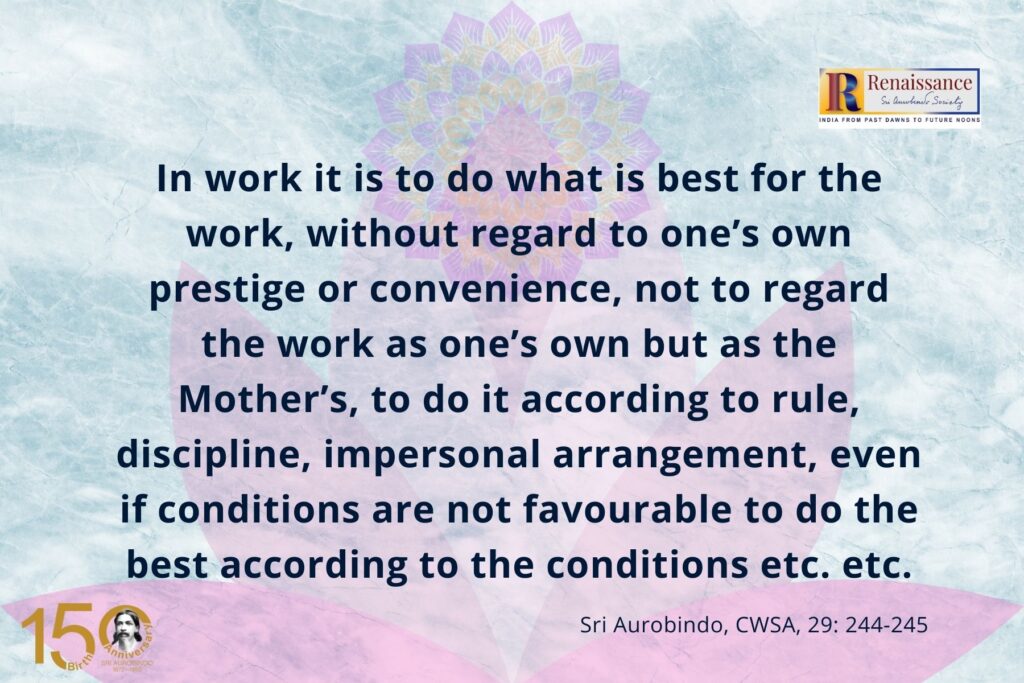“Spiritually there is nothing big or small.”
Sri Aurobindo reminds us that all work is equal in the eyes of the spirit. No work is big or small, and all work can be done in the spirit of sadhana.
“Spiritually there is nothing big or small.” Read More »

